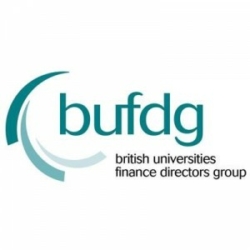The Recruitment and Admissions Toolkit has not been updated as yet but has been left here for archive purposes.
There is considerable anecdotal evidence that students who have studied Further Mathematics find the transition to the mathematics taught and used in an undergraduate engineering programme much easier. A report published by the Institute of Physics in 20111 found:
“Those students who had studied further mathematics to A- or AS-level standard reported coping better with the mathematical content of the degree, and as such perceived that they required less additional support throughout their studies. Many students and academics felt that studying further mathematics should therefore be made a requirement of studying physics or engineering at university.”
It seems then, that is in the interests of engineering departments that more students study Further Mathematics, at least to AS level, which introduces them to complex numbers and matrices and extends their algebraic abilities.
But one of the main obstacles to future growth in the number of students taking Further Mathematics is the cost to many schools and colleges of running courses for relatively few students. Universities can play a key role in further increasing the number of students taking Further Mathematics by providing clear encouragement to students to do so through their admissions policies and in course planning.
Admissions statements and entry requirements which emphasise the importance of Further Mathematics have a strong influence on students’ subject choices and have helped to create the demand from students for Further Mathematics. The Russell Group report “Informed Choices”, which lists Further Mathematics as a facilitating subject has helped many school and college mathematics departments make the case for more Further Mathematics provision.
Engineering departments can help to promote the study of Further Mathematics and improve the prior knowledge of their students. Some examples which have been used successfully by HE mathematics departments are:
- Including encouraging statements in admissions literature about the benefits of studying full A Level or AS Level Further Mathematics;
- Indicating the proportion of undergraduates currently studying a particular course with A or AS Level Further Mathematics qualifications;
- Offering bursaries/scholarships to students with Further Mathematics qualifications;
- Differentiating the grades in the offer for students with Further Mathematics;
- Making A or AS Level Further Mathematics a requirement for the course.
Working to promote engineering applications
The Advanced Mathematics Support Programme (AMSP) is a government-funded initiative, supported by the Department for Education and is managed by Mathematics in Education and Industry (MEI). The MEI website contains a range of resources for both teachers and students of Maths and Advanced Maths.
The Advanced Mathematics Support Programme is able to provide information for teachers and students about STEM degree courses, including the Advanced Mathematics requirements, via its network of Area Coordinators, through newsletters and at AMSP events.
These information sheets are of particular interest:
Further Maths [now Advanced Maths] Briefing for Higher Education (2013)
The current content of AS and A2 Further Mathematics (2013)
..and a network of regional university-based representatives is available for local support.
See also details and resources available from the Sigma organisation which has received HEFCE funding to enable any higher education institution in England to tap into a wealth of expertise and resources which it has developed. Sigma, established in 2005, has been a driving force in the creation of university-wide centres dedicated to helping students to develop and improve mathematical and statistical skills. It is led by Professors Tony Croft from Loughborough University and Duncan Lawson from Newman University.
Any views, thoughts, and opinions expressed herein are solely that of the author(s) and do not necessarily reflect the views, opinions, policies, or position of the Engineering Professors’ Council or the Toolkit sponsors and supporters.
 A leaflet outlining how teachers and researchers can achieve professional recognition and explaining the benefits is available from the Engineering Council. This and other relevant documents can be downloaded from the Engineering Council website. For hard copies of the leaflet email info@engc.org.uk.
A leaflet outlining how teachers and researchers can achieve professional recognition and explaining the benefits is available from the Engineering Council. This and other relevant documents can be downloaded from the Engineering Council website. For hard copies of the leaflet email info@engc.org.uk. The Leadership Foundation exists to support development of management and leadership skills in “existing and future leaders in higher education”. Its programmes range from support in understanding university finances better to courses for new heads of department.
The Leadership Foundation exists to support development of management and leadership skills in “existing and future leaders in higher education”. Its programmes range from support in understanding university finances better to courses for new heads of department.